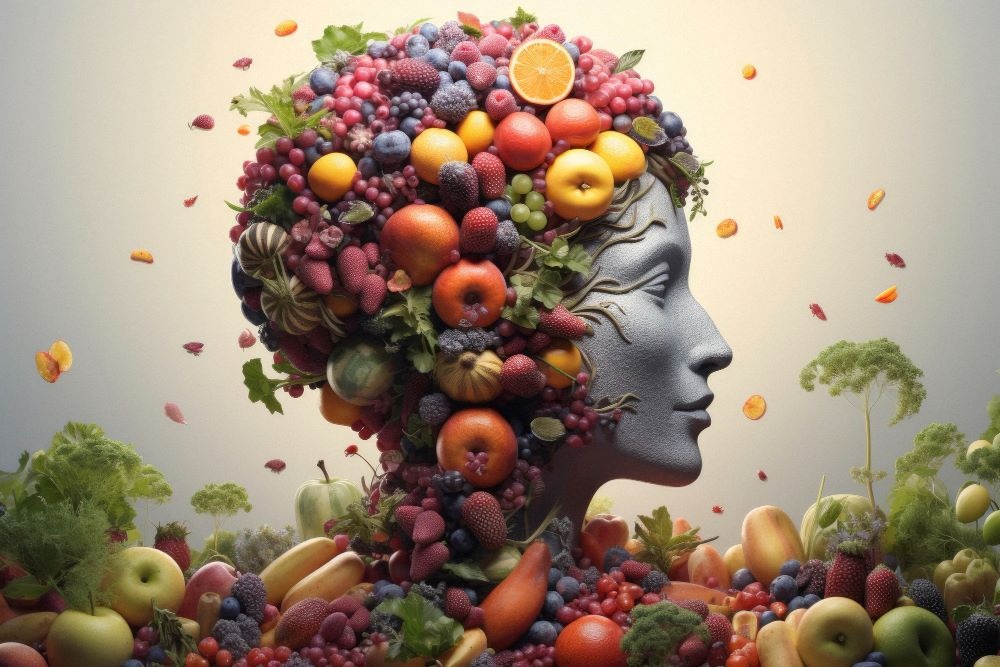lIFE IS TOUGH MAKE IT CHILLABLE!
The connection between diet and mental health
The connection between diet and mental health. While food alone cannot cure mental health disorders, the evidence is clear that it is a fundamental piece of the puzzle. A healthy diet creates a foundation for a healthy gut, which in turn supports a healthy, more resilient brain.
9/21/20254 min read


Connecting Dietary Habits to Brain Function
We've all heard the saying "you are what you eat," but have you ever thought about how true this might be when it comes to your mental health? Recently, studies have shown, there's a pretty fascinating connection between what's on your plate and what's going on in your head. This has made more people think about how their eating habits can influence their mood and overall mental well-being.
The Gut–Brain Connection
Another important piece is how the gut and the brain talk to each other. The gut has trillions of bacteria living in the intestines. These bacteria make chemicals that can affect our mood and how we handle stress. Eating foods high in fiber, fermented foods, and probiotics helps keep a healthy mix of gut bacteria, which can boost mental health. But eating lots of processed foods and not enough fiber can upset this balance and may contribute to anxiety and depression.
When people say they have “gut feelings” or feel “butterflies in the stomach” when they’re anxious, they’re not just words. Your digestive system has many nerves that talk to your brain all the time.
Foods to Boost Your Mood
Diets rich in fruits, vegetables, whole grains, and healthy fats can lead to a more stable and positive mental state. Think of it as eating in a way that makes both your body and mind feel good.
Omega-3 fatty acids are like premium fuel for your brain. You'll find them in fatty fish like salmon and sardines, walnuts, and flax seeds. Studies show that people who eat more omega-3s tend to have lower rates of depression and anxiety.
Complex carbohydrates from whole grains, sweet potatoes, and legumes help keep your blood sugar stable, which prevents those energy crashes that can leave you feeling irritable or down.
Leafy greens and colorful vegetables are packed with folate and other B vitamins that your brain needs to produce those mood-regulating chemicals.
Fermented foods like yogurt, kefir, sauerkraut, and kimchi feed the good bacteria in your gut, which in turn supports that gut-brain connection we talked about.
Fueling your body with these vital nutrients could be just as important as any therapy session.
Foods That Mess with Your Head
Some foods can make your mood worse. You don’t have to avoid them completely (life’s short), but it’s good to know how they might affect you.
Highly processed foods and those loaded with added sugars can cause blood sugar spikes and crashes that leave you feeling anxious, irritable, or depressed. Plus, they often crowd out the nutrient-dense foods your brain actually needs.
Too much caffeine can make anxiety worse, especially if you tend to worry. And while that glass of wine might seem relaxing at the moment, alcohol is actually a depressant and can disrupt your sleep, which is crucial for mental health.
More Than Just Single Ingredients
Here's the thing though – it's not really about labeling foods as "good" or "bad." Your mental health is influenced by your overall eating pattern, not just whether you had a cookie today. The Mediterranean diet, for example, has been linked to lower rates of depression, and it's not because people are avoiding all treats. It’s because the diet focuses on whole foods, healthy fats, and lots of variety.
Mind and Body Work Together
What's fascinating is that this connection works in both directions. Just like poor nutrition can affect your mood, stress and mental health struggles can affect your eating habits. When you're anxious or depressed, you might want to eat comfort foods, skip meals, or lose your appetite.
This creates a cycle that can be hard to break. You feel bad, so you eat in a way that doesn't support your mental health, which makes you feel worse, and so on. You feel bad, so you eat in a way that hurts your mental health, which makes you feel worse, and so on. Seeing this pattern is the first step to changing it.
Tips for a Healthy Mind-Diet
You don't need to overhaul your entire diet overnight. Small, sustainable changes often work better anyway. Start by planning your meals with the suggested mood-boosting foods in mind. Try to limit processed foods and added sugars, as these can lead to mood swings and energy crashes.
Also, staying hydrated is often overlooked – drinking enough water can positively impact your energy levels and mental clarity. Don’t forget the importance of enjoying your food and eating mindfully; taking the time to savor what you eat can transform your mealtime experience and promote a positive relationship with food.
More Than Food
Healthy eating helps mental health, but it’s just one part of the picture. If you’re dealing with depression, anxiety, or other mental health issues, eating well can help, but it isn’t a substitute for professional help when you need it.
Think of good nutrition as one tool in your mental health toolkit, along with exercise, sleep, friends and family, and professionals when needed.
Conclusion: Eat Well, Feel Well
What we eat affects both our body and our mind. Just like good foods keep our bodies healthy, good nutrition also helps our mental health. Eating foods with plenty of whole foods, healthy fats, lean proteins, and fiber can improve our mood, thinking, and how we handle stress. Your brain works a lot for you every day—so give it the fuel it needs to do its best.
Thanks for reading
Subscribe, read new articles and support our work along the way.
Similar Posts
Life Is Tough Make It Chillable!
LITMICH © 2025. All rights reserved.


Please follow us & like us:
Contact Us
